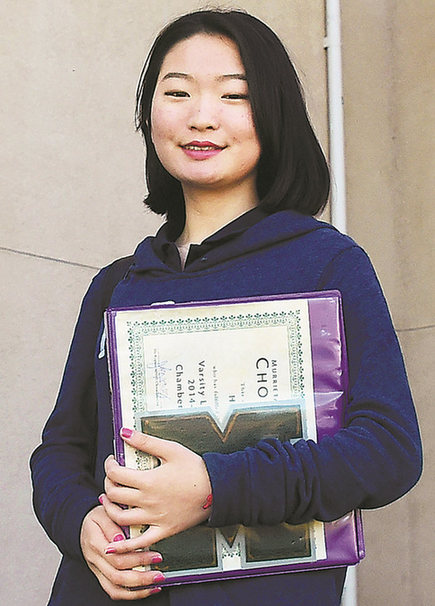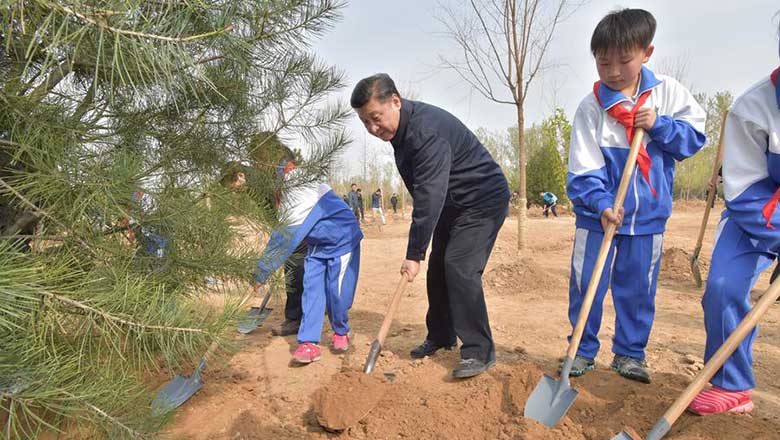Chinese 'parachute kids' flock to US schools
Updated: 2016-04-05 02:29
(China Daily)
|
||||||||
 |
|
Zhou Hailun,17-year-old studying in California |
Growing up on the Chinese mainland, Zhou Hailun always knew that she would finish her high school education in the United States, whatever the cost.
"That's what everybody does," said the 17-year-old from Sichuan province, who has spent the past two years studying in California and will graduate this spring. "My father's friends all sent their kids abroad, so that was the trend."
Zhou is among a growing number of Chinese teens who are flocking to US high schools, looking for a Western education and a competitive edge in gaining admission to US universities and then finding a job back home.
But the pursuit of the American dream can quickly turn into a nightmare, experts warn, as many of these so-called parachute kid live in the US with little parental supervision and can end up in trouble — and even in prison.
"It's a huge industry," said Joaquin Lim, who runs a company that helps place Chinese students in US schools. "The last figure I read put it at $25 billion."
Of nearly 1 million international students enrolled in public and private institutions in the United States in 2014 and 2015, about 304,000 — or 31.2 percent — were from China, according to the Washington-based Institute of International Education.
About 30,000 of those students attended secondary schools, compared with fewer than 1,000 a decade ago.
The majority of these "parachute kids" ages 14 to 19 end up in Southern California. For the most part, they attend Catholic or Christian schools because of restrictions by the US government on the number of foreign-exchange students enrolled in public schools.
In cities such as Murrieta, a rural community about 130 kilometers southeast of Los Angeles, the number of Chinese students has ballooned in recent years, bringing welcome cash to the school district as well as the host families who care for the teens.
"It costs about $50,000 a year for the parents, who are mostly middle class, to send their kids here, but they consider it an investment," Lim said.
"Three years ago, we had about 40 Chinese students enrolled in high schools in Murrieta and today we have more than 300, and the number keeps growing."
The town of about 105,000 residents is a far cry from China's polluted mega-cities, but most of the teens adjust well to US life, said Renate Jefferson, who oversees the exchange program for the public school district.
"What they notice first is the blue sky," she said. "They just walk around in awe at the blue sky. They think it's beautiful."
The students are also baffled by the freedom they enjoy academically — a welcome change from the rigorous, rote-learning system in China.
"You have a lot of choices and much more freedom to study what you're interested in," said Li Junheng, 19, who is graduating this year from a Catholic school in Murrieta.
But many of the "parachute kids", whose parents rely on intermediaries to help them through the bewildering application process, are in for a hard landing in the United States, ill-equipped to navigate the cultural transition and their newfound independence.
Last month, three Chinese teens enrolled at a private school in Rowland Heights, a neighborhood east of Los Angeles, were given prison sentences ranging from six to 13 years for attacking a classmate.
The incident attracted widespread attention in China and prompted soul-searching on the wisdom of sending teenagers to a foreign country with no close parental supervision.
"You don't send your child 6,000 miles before verifying the school and who they are staying with," Lim said. "Too often, these kids are thrown into a completely foreign environment and are not prepared to fend for themselves."
- Xi: Talks 'only correct way' for China, ROK
- Xi to Obama: Disputes should be managed
- Cypriot court remands in custody man suspected of hijacking EgyptAir flight
- Govt eyes luxury tourists amid concerns over safety
- Sleep tight and don't let sharks bite at Paris aquarium
- Aung San Suu Kyi appointed as Myanmar's new foreign minister

 Charity Law to give good Samaritans a helping hand
Charity Law to give good Samaritans a helping hand
 Top Chinese leaders attend voluntary tree-planting in Beijing
Top Chinese leaders attend voluntary tree-planting in Beijing
 Zhouzhuang water town viewed through artistic eyes
Zhouzhuang water town viewed through artistic eyes
 8 trends of major price movements gauging China's economy
8 trends of major price movements gauging China's economy
 Microsoft embraces artificial intelligence
Microsoft embraces artificial intelligence
 Yao Ming introduced to Hall of Fame
Yao Ming introduced to Hall of Fame
 The world in photos: March 28 - April 3
The world in photos: March 28 - April 3
 Discover beautiful China in spring blossom (V)
Discover beautiful China in spring blossom (V)
Most Viewed
Editor's Picks

|

|

|

|

|

|
Today's Top News
Marriott unlikely to top Anbang offer for Starwood: Observers
Chinese biopharma debuts on Nasdaq
What ends Jeb Bush's White House hopes
Investigation for Nicolas's campaign
Will US-ASEAN meeting be good for region?
Accentuate the positive in Sino-US relations
Dangerous games on peninsula will have no winner
National Art Museum showing 400 puppets in new exhibition
US Weekly

|

|







